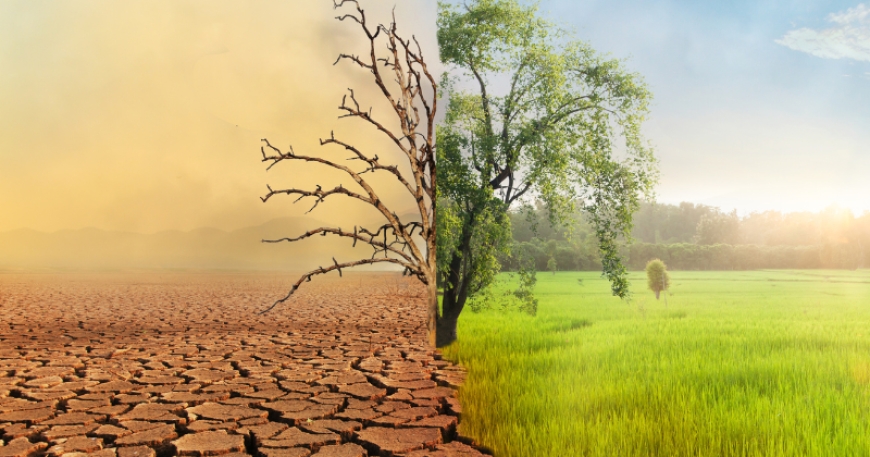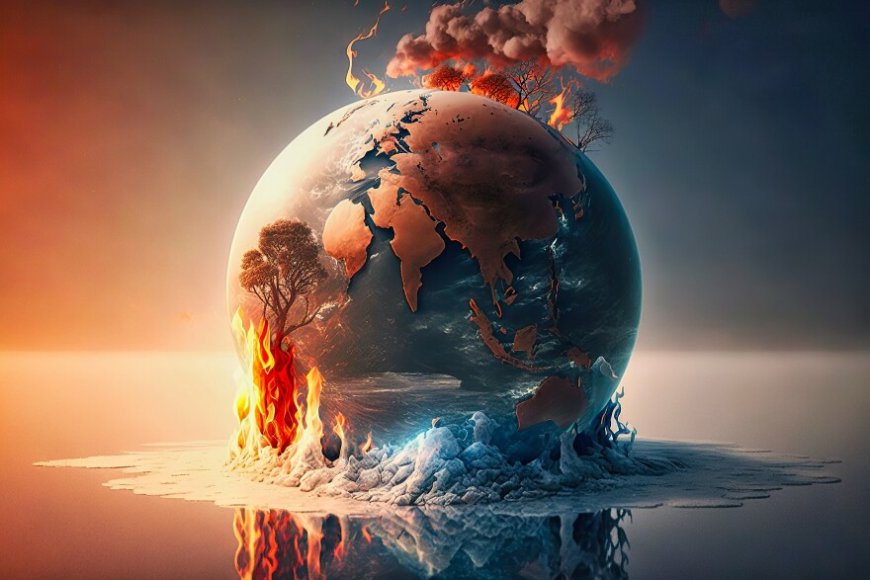The Impact of Climate Change on Human Lives
Climate change, driven by increasing greenhouse gas emissions, is profoundly affecting human lives across the globe. As global temperatures rise, the consequences of climate change are becoming increasingly apparent in various aspects of life, from health and safety to economic stability and food security. This article explores the significant ways in which climate change is impacting human lives.
Rising temperatures are leading to an increase in heat-related illnesses such as heatstroke, dehydration, and the worsening of cardiovascular and respiratory diseases. Vulnerable populations, including the elderly, children, and those with pre-existing health conditions, are at heightened risk. Climate change is shifting the distribution of vector-borne diseases like malaria, dengue fever, and Lyme disease. Warmer temperatures and altered precipitation patterns create favorable conditions for disease-carrying insects such as mosquitoes and ticks, allowing them to spread into new regions. Increased temperatures and higher levels of pollutants in the atmosphere are deteriorating air quality, leading to respiratory problems, including asthma and chronic obstructive pulmonary disease (COPD). The rise in wildfires, driven by climate change, also contributes to poor air quality, exacerbating respiratory issues.
Changing weather patterns, such as more frequent droughts, floods, and heatwaves, are negatively impacting agricultural productivity. This leads to declining crop yields, food shortages, higher food prices, and increased hunger, particularly in developing countries. Climate change is also affecting the nutritional quality of food. Higher CO2 levels can reduce the concentration of essential nutrients in staple crops like wheat and rice, worsening malnutrition and health issues in vulnerable populations.Ocean warming and acidification are threatening marine ecosystems and fisheries, leading to declines in fish stocks. Livestock production is also suffering from heat stress, reduced water availability, and changes in feed quality, further straining food supplies.
Prolonged and more severe droughts are becoming more common, leading to water shortages that affect drinking water supplies, agriculture, and industry. In many regions, water scarcity is becoming a significant challenge, intensifying conflicts over water resources. Melting glaciers and reduced snowpack in mountainous regions threaten the water supply for millions of people who rely on meltwater for drinking, irrigation, and hydropower. This is a growing concern for communities in South Asia, the Andes, and the western United States. Climate change is also increasing the intensity and frequency of extreme rainfall events, leading to more frequent and severe flooding. Floods not only destroy homes and infrastructure but also contaminate water supplies, leading to outbreaks of waterborne diseases.
Climate change is disrupting industries such as agriculture, fishing, and tourism, leading to the loss of livelihoods for millions of people. In regions dependent on climate-sensitive activities, economic instability and poverty are on the rise.Extreme weather events, including hurricanes, floods, and wildfires, cause significant damage to infrastructure, homes, and businesses. The financial burden of rebuilding and repairing damaged infrastructure is immense, straining both government and community resources. As climate-related disasters become more frequent, more people are being forced to migrate in search of safer living conditions. Climate change is expected to become a leading cause of displacement in the coming decades, creating climate refugees and intensifying social and economic tensions.
The stress and anxiety associated with climate change, particularly after experiencing extreme weather events, can lead to mental health issues such as depression, post-traumatic stress disorder (PTSD), and anxiety disorders. The uncertainty surrounding future climate impacts also contributes to widespread fear and helplessness. Climate change disproportionately affects marginalized and low-income communities, exacerbating existing social inequalities. These communities often have fewer resources to adapt to climate impacts, increasing their vulnerability and suffering. Resource scarcity, particularly of water and food, can lead to conflicts and social unrest. As climate change continues to strain resources, it may contribute to geopolitical instability and exacerbate existing tensions between nations and communities.
Climate change is already having a significant impact on human lives, and its effects are expected to intensify in the coming years. The decisions we make today will shape the quality of life for future generations, making it imperative to act now.
What's Your Reaction?





























































